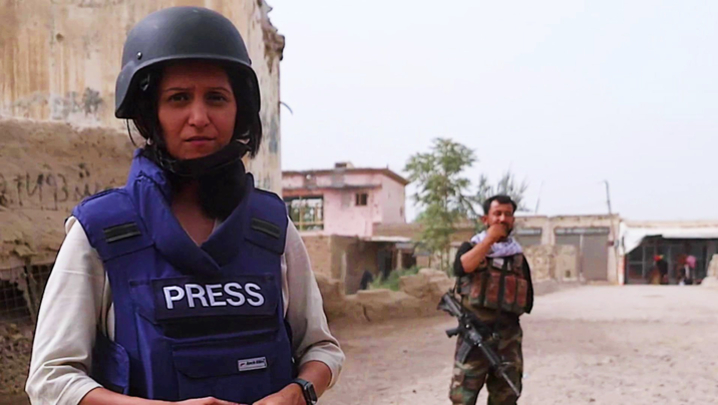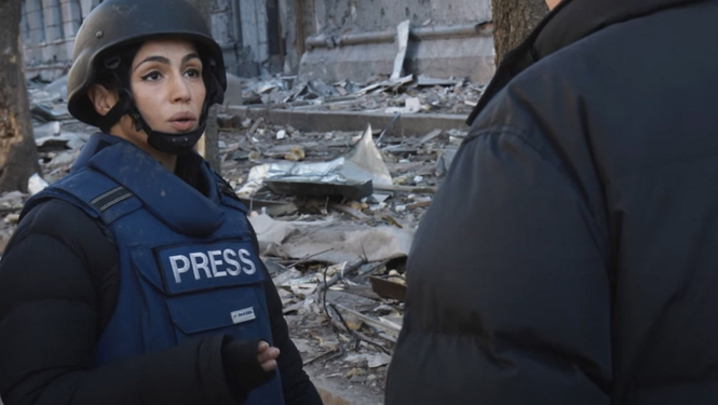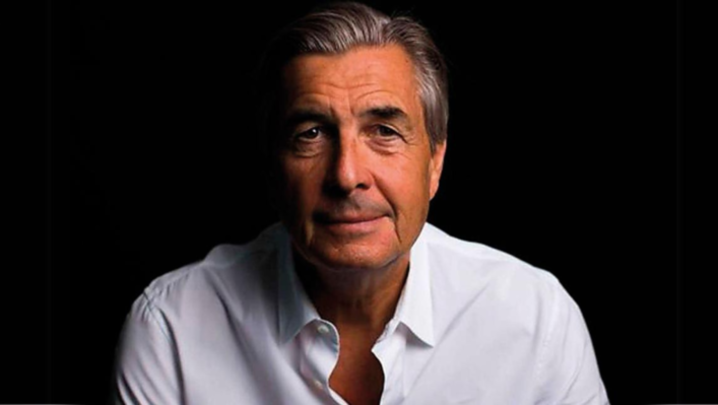In the wake of Russia’s 2022 invasion, Ukrainian journalist Yelena Fedoreyko had to fit her life into two suitcases
I overslept the beginning of the invasion on 24 February. The evening before, I was at the cinema alone: my nervous friend had declined, saying, “Let’s meet after the war!” Around midnight, four hours before the attack, I finished writing a story about Hollywood movie Dog, starring Channing Tatum, which was due to be released in Ukraine.
Kyiv is a fairly large city and the initial explosions were far away. At 8:00am all social media feeds were filled with videos of Russian military columns. They had come to “liberate” us from ourselves, because if a Ukrainian doesn’t consider themselves Russian, they’re labelled a Nazi. While I thought about how to fit my whole life into two suitcases, a massive rocket fell at the crossroads, not far from my flat. Luckily, it didn’t explode.
On 28 February, I started work again. Journalists, directors and video editors from channel 1+1’s morning team formed a group called the Fighting Pluses. With a team of translators, we produced videos for YouTube to tell the world what was happening in Ukraine. In the first 106 days of war, we made 172 episodes in nine languages.
Working was difficult. We were in different parts of the country, hiding in basements during air raids. War is a nightmare that is hard to comprehend. My mind was overwhelmed by thoughts of the Russian military killing, raping, torturing and destroying my homeland.
I returned from the horrors of war to producing entertainment content on 28 March. Watching the Oscars ceremony in a basement was surreal. Even more surreal was discussing the Will Smith-Chris Rock slapping incident on air in the morning. But at that point, we already understood that the audience needed distraction from the war.
My job is to write film reviews but, for more than two months after the invasion, I couldn’t – I didn’t want to watch movies. I received many messages from viewers sharing similar feelings. Cinema has the power of escapism, but it is limited. You can’t immerse yourself in fiction when your own life is falling apart.
Although many Ukrainians were not in the mood for movies in the first months of the war, public support from celebrities was crucial. Photos and videos from the likes of Sean Penn, Ben Stiller and Angelina Jolie, who visited Ukraine, spread rapidly on social media. Benedict Cumberbatch, already beloved from Sherlock, became an idol after stating he would host a Ukrainian family. Michael Douglas was particularly inspiring during a press junket in London.
Cinemas in Ukraine reopened in late May 2022. At first, audiences were tiny – I was the only person watching Top Gun: Maverick. Tom Cruise’s stunts didn’t seem so impressive in comparison with the hundreds of stories of real bravery and self-sacrifice on the battlefield. A year later, and releases such as Barbie and Oppenheimer are attracting hundreds of viewers. Film showings stop during air raids and viewers have to go to shelters – but more and more moviegoers ask for films not to be interrupted.
Many of my colleagues who were once journalists, directors and producers are now on the frontline. Sometimes, when I write that I’m in Kyiv and want to meet, some reply, “Sorry, I can’t. I’m in a trench near Bakhmut.”
I’ve been living in London for about a year, working remotely. I miss the studio, make-up room, camera operators and newsroom, everything that has been a big part of my life for so many years. Writing reviews can be done from anywhere, the problem is how to record them.
Soundproofing is needed, so an old wardrobe comes to the rescue. When I hide there and read something aloud, friends joke that now I’m working from Narnia.
Yelena Fedoreyko is a journalist at Ukrainian TV channel 1+1.







